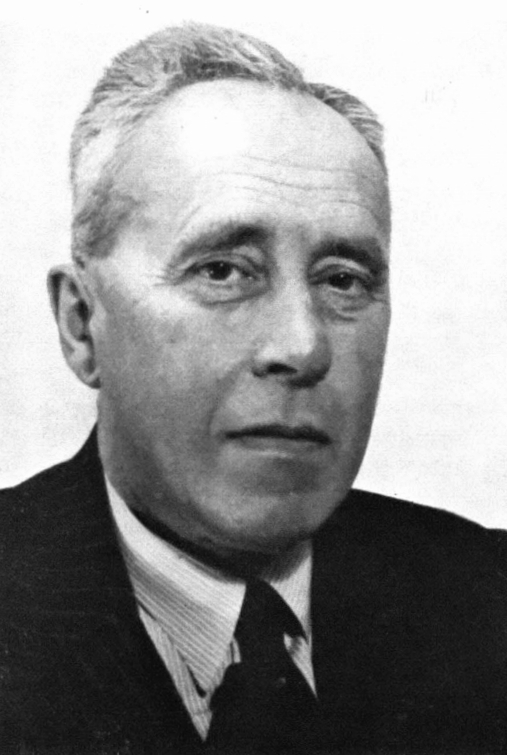A superstition which pretends to be scientific creates a much greater confusion of thought than one which contents itself with simple popular practices.

About Johan Huizinga
Johan Huizingawas a Dutch historian and one of the founders of modern cultural history.
More quotes from Johan Huizinga
If we are to preserve culture we must continue to create it.
Dutch cultural historian (1872-1945)
The susceptibility of the average modern to pictorial suggestion enables advertising to exploit his lessened power of judgment.
Dutch cultural historian (1872-1945)
A superstition which pretends to be scientific creates a much greater confusion of thought than one which contents itself with simple popular practices.
Dutch cultural historian (1872-1945)
The second fundamental feature of culture is that all culture has an element of striving.
Dutch cultural historian (1872-1945)
Revolution as an ideal concept always preserves the essential content of the original thought: sudden and lasting betterment.
Dutch cultural historian (1872-1945)
We can’t put up a protectionist dam on our own against the neo-liberal world market either. However, we can try, together with our European partners, to maintain the social character of Europe as much as possible.
Dutch cultural historian (1872-1945)
Systematic philosophical and practical anti-intellectualism such as we are witnessing appears to be something truly novel in the history of human culture.
Dutch cultural historian (1872-1945)
You only live a short time… and you are dead a long time.
Dutch cultural historian (1872-1945)
Whether the aim is in heaven or on earth, wisdom or wealth, the essential condition of its pursuit and attainment is always security and order.
Dutch cultural historian (1872-1945)
Every age yearns for a more beautiful world. The deeper the desperation and the depression about the confusing present, the more intense that yearning.
Dutch cultural historian (1872-1945)
It is impossible to strive for the heroic life. The title of hero is bestowed by the survivors upon the fallen, who themselves know nothing of heroism.
Dutch cultural historian (1872-1945)
Life is made too easy. Mankind’s moral fibre is giving way under the softening influence of luxury.
Dutch cultural historian (1872-1945)
In Europe art has to a large degree taken the place of religion. In America it seems rather to be science.
Dutch cultural historian (1872-1945)
Culture means control over nature.
Dutch cultural historian (1872-1945)
Physical nature lies at our feet shackled with a hundred chains. What of the control of human nature? Do not point to the triumphs of psychiatry, social services or the war against crime. Domination of human nature can only mean the domination of every man by himself.
Dutch cultural historian (1872-1945)
Play is a uniquely adaptive act, not subordinate to some other adaptive act, but with a special function of its own in human experience.
Dutch cultural historian (1872-1945)
From whichever angle one looks at it, the application of racial theories remains a striking proof of the lowered demands of public opinion upon the purity of critical judgment.
Dutch cultural historian (1872-1945)
It is the goal of the American university to be the brains of the republic.
Dutch cultural historian (1872-1945)
History is the interpretation of the significance that the past has for us.
Dutch cultural historian (1872-1945)
Do you know anything that in all its innocence is more humiliating than the funny pages of a Sunday newspaper in America?
Dutch cultural historian (1872-1945)
History creates comprehensibility primarily by arranging facts meaningfully and only in a very limited sense by establishing strict causal connections.
Dutch cultural historian (1872-1945)
Culture must have its ultimate aim in the metaphysical or it will cease to be culture.
Dutch cultural historian (1872-1945)
The repudiation of the primacy of understanding means the repudiation of the norms of judgment as well, and hence the abandonment of all ethical standards.
Dutch cultural historian (1872-1945)
History can predict nothing except that great changes in human relationships will never come about in the form in which they have been anticipated.
Dutch cultural historian (1872-1945)
These are strange times. Reason, which once combatted faith and seemed to have conquered it, now has to look to faith to save it from dissolution.
Dutch cultural historian (1872-1945)
An aristocratic culture does not advertise its emotions. In its forms of expression it is sober and reserved. Its general attitude is stoic.
Dutch cultural historian (1872-1945)